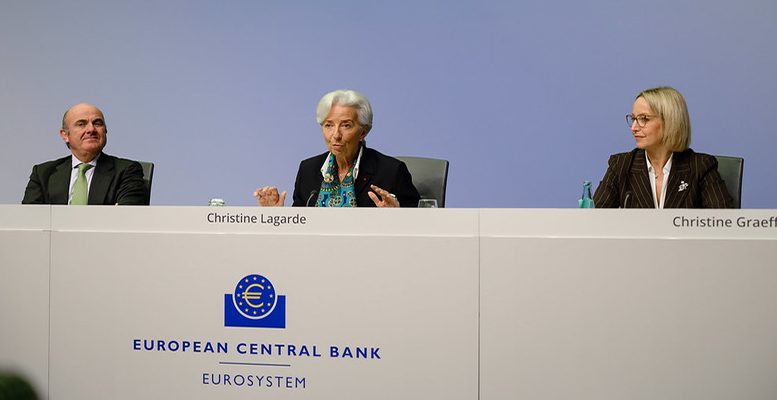Juan Pedro Marín-Arrese | Christine Lagarde is trying to convince the markets of the ECB’s strong determination to tame the current inflationary bout. To avoid having its reputation as caretaker of price stability tarnished, the ECB has to reverse the benign neglect shown up to now. Yet, Lagarde is conscious of the narrow scope monetary policy has when dealing with supply-side cost hikes. Thus, rather than taking the pivotal action of raising rates, she prefers to talk down inflation.
After the last ECB meeting, harsh language in her press conference has propelled the euro and lifted long-term interest rates. Putting an end to the extraordinary asset-buying programme to curb the crisis has undoubtedly helped but to a relatively modest extent. The markets only moved following her unambiguous announcement that the ECB feels ready to lift rates. The ECB will probably defer that decision until the last quarter once having muted to a low-level the standard asset-buying scheme in October.
Both the ECB and the Federal Reserve have to undertake a lot of homework to coax the markets into believing they will use their full weaponry to address inflation. Last year, they unwittingly dismissed that threat downplaying price increases as a short-lived adjustment fuelled by the fast recovery and the ensuing bottlenecks in the supply chain. They ignored evidence losing credibility as price hikes gathered momentum. Central bankers dislike moving under pressure. Yet, the situation at the end of last year seemed untenable.
True enough, the markets have failed to discount inflation, thus keeping the yield curve ominously flat at a marked low range. Investors seem to price in their expectations on official rate hikes. Such absence of proper signals coming from the markets has helped central banks keep their accommodative stance for too long. The danger of falling behind the curve never emerged.
Now they must overreact even if the chances of winning this battle seem rather slim. Increasing the financial costs will only dampen investment when the readjustment of overall production requires just the opposite. Nor will the Fed last-minute move avoid the likely discomfiture of the Democrats in the coming elections. Powell dismissed the urgent calls from the White House. Now, he faces the unpalatable choice of striking hard for little gain or disappointing the market’s expectations.
After the summer, prices will gradually come back to normal, thus providing much-needed breathing space for central banks. They cannot overshoot rates beyond a relatively low ceiling for all their pledges to act. The threat of derailing the debt market and destabilising public finances weighs against it. Ms Lagarde’s strategy of talking down inflation while refraining from rushing into the rate race, thus buying precious time, proves a winning card that most probably will pay off.





